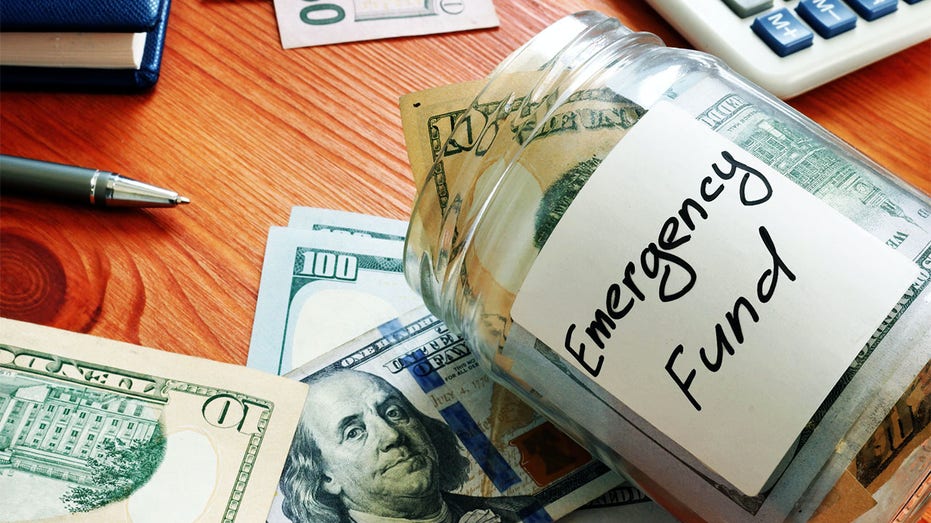Inflation making US households uneasy about emergency savings
Goldman Sachs, Bank of America, Deutsche Bank have raised the odds of an economic downturn in 2022 or 2023
The House holds a hearing on the state of the economy with Fed Chair Jerome Powell
The House holds a hearing on the state of the economy with Fed Chair Jerome Powell.
As record-high inflation has prompted consumer prices to soar, some U.S. households are feeling uneasy about their emergency savings, according to a new survey.
More than half of the 1,025 adults (58%) surveyed by Bankrate between June 3 and 5, 2022, said they are concerned about the amount they have in emergency savings, up from 48% in 2021 and 44% in 2020. Of those who were uncomfortable with their emergency fund, 75% had no savings or not enough to cover at least three months’ worth of living expenses. Just 43% of those who were very uncomfortable have any savings at all.
As for the 42% of respondents who are very or somewhat comfortable with what they've saved, 82% had at least three months’ worth of expenses saved.
Among households that earned more than $100,000, more than half (59%) were somewhat or very comfortable with their emergency savings, while less than half (46%) of those earning $50,000 to $99,999 reported being comfortable with their emergency funds. Among households that earned less than $50,000 annually, 37% had no emergency savings at all.
FED CHAIRMAN CONTRADICTS BIDEN, SAYS RUSSIA'S UKRAINE INVASION NOT THE MAIN INFLATION DRIVER

As record high inflation has prompted consumer prices to soar, many U.S. households are feeling uneasy about their emergency savings, according to a new survey. (iStock / iStock)
Just 38% of millennials (ages 26-41) were somewhat or very comfortable with their emergency savings, compared to 41% percent of Generation X (ages 42-57) and 49% of baby boomers (ages 58-76).
Only 24% of adults surveyed by Bankrate reported having more money in an emergency fund than they did a year ago. In comparison, 32% said they had the same amount of savings, 34% said they had less savings and 10% said they had no savings then or now.
Slightly over a quarter (27%) of households surveyed had enough savings to cover at least six months of expenses — up from 25% each of the past two years. Meanwhile, 22% of households surveyed had enough saved to cover three to five months’ worth of expenses — the highest percentage since 2011. A total of 28% of households had some savings, but not enough to cover three months of expenses.
CLICK HERE TO READ MORE ON FOX BUSINESS
In May, the consumer price index – a broad measure of the price for everyday goods, including gasoline, groceries and rents – rose 8.6% from a year ago.
Last week, the Federal Reserve raised its benchmark interest rate by 75 basis points for the first time in nearly three decades. The move puts the key benchmark federal funds rate at a range between 1.50% to 1.75%, the highest since the pandemic began two years ago.
Officials also laid out an aggressive path of rate increases for the remainder of the year. New economic projections released after the Fed's two-day meeting showed policymakers expect interest rates to hit 3.4% by the end of 2022, which would be the highest level since 2008.
Fed Chairman Jerome Powell told reporters at a press conference following the meeting that another increase of 75 basis points or 50 basis points is on the table for its July meeting.

Federal Reserve Chairman Jerome Powell speaks to the Senate Banking, Housing and Urban Affairs Committee, as he presents the Monetary Policy Report to the committee on Capitol Hill, Wednesday, June 22, 2022, in Washington. (AP Photo/Manuel Balce Ceneta / AP Newsroom)
Though the Fed is aiming to orchestrate a soft landing – the sweet spot between taming consumer demand and inflation without crushing economic growth – Powell told the Senate Banking Committee during testimony on Wednesday that it will be "very challenging."
Goldman Sachs, Bank of America and Deutsche Bank have all raised the odds of a downturn in 2022 or 2023, and Powell has conceded there's a real possibility of a recession. More than 60% of executives expect a recession in the next 12 to 18 months, according to a survey of CEOs and other C-suite executives conducted by the Conference Board, a business research firm.
FOX Business' Megan Henney contributed to this report





















